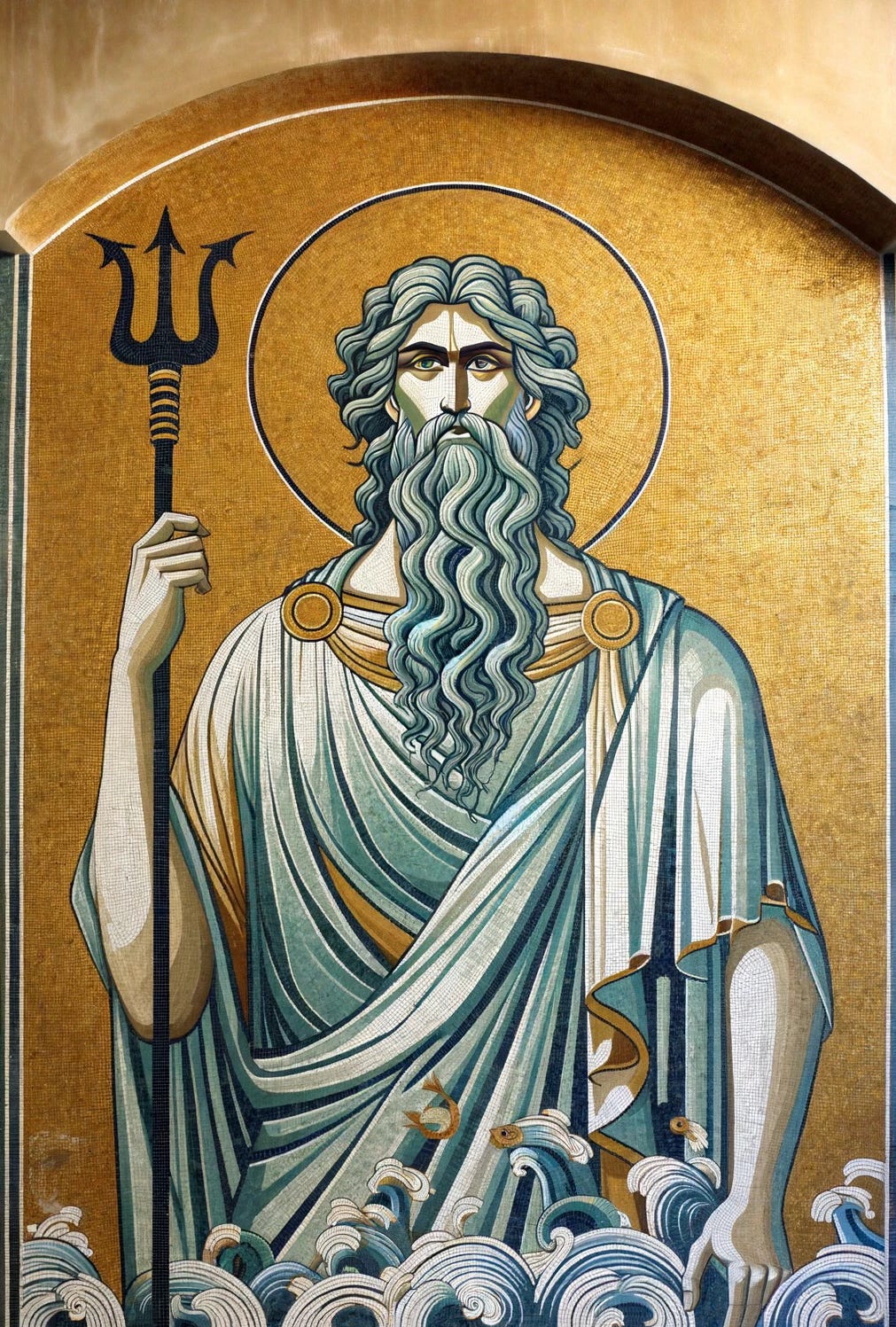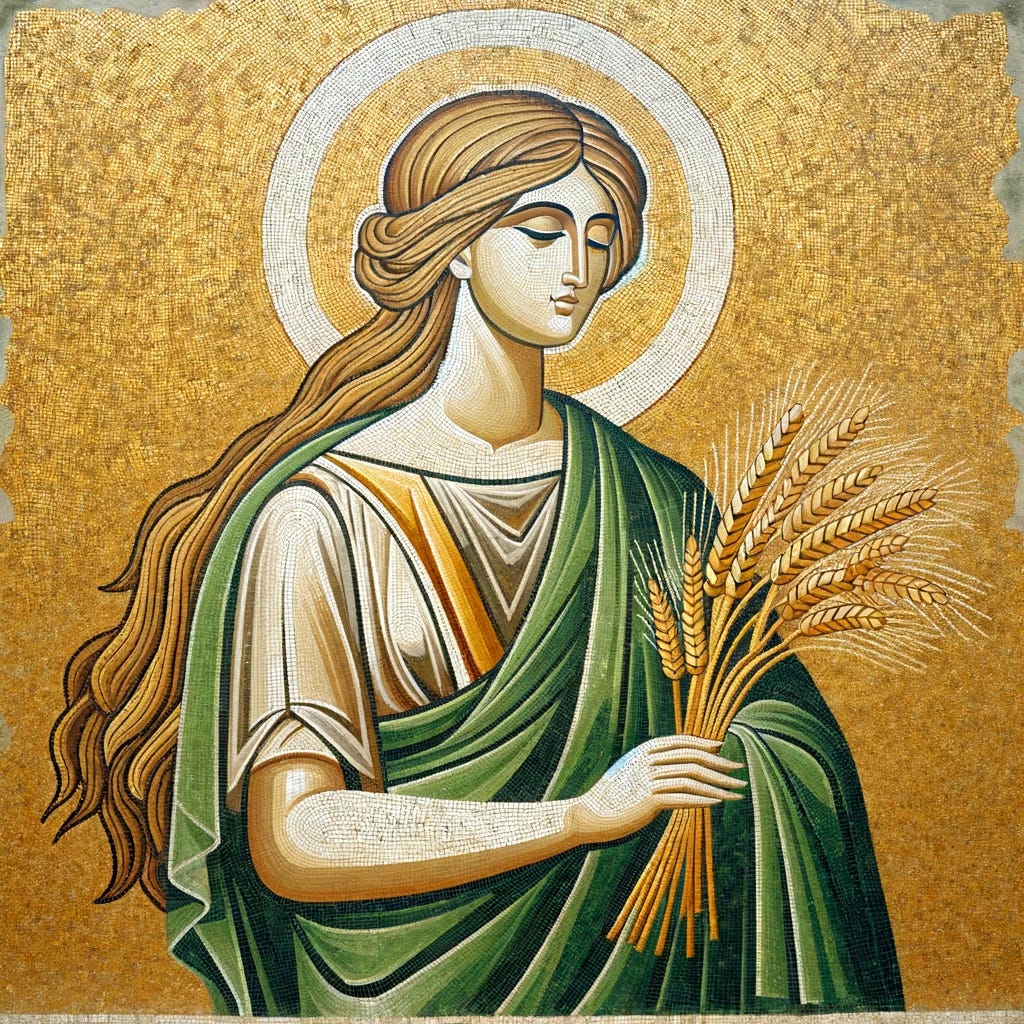Divine Functions in Sallustius’ On the Gods and the World
What are the functions of the Gods in operating and maintaining the cosmos? Sallustius' Platonic exegesis provides a meaningful understanding of who the Gods are and what they do.
Sallustius’ On the Gods and the World is a text I always recommend people read. In this post, I will look at chapter six. In this chapter, Sallustius presents a Platonic exegesis of how the Gods operate and maintain the cosmos through four functions: creation, animation, harmony, and preservation. Three Gods of the twelve Olympians are assigned to each of these functions. The works of other Platonists will be included in the discussion to help flesh out Sallustius’s writing.
Creation: The Act of Demiurgy
The first function is Creation. This function represents the activity of the Gods in forming the material world. For Sallustius, the three Gods assigned creative functions are Zeus, Poseidon, and Hephaestus. Concerning creation, we have to turn to Plato's account of demiurgy found in Timaeus. There, Plato describes the Demiurge as a benevolent, rational being who brings order to the chaotic, pre-existing matter by shaping it according to the eternal, perfect Forms.
In the Platonic vision, creation is not ex-nihilo that is, out of nothing. Creation is a deliberate act expressive of divine goodness. The Demiurge imposes order on the formless matter, following the Forms as a blueprint. Thereby, he produces a cosmos expressive of the harmony and rationality of the Forms despite the imperfection of the world of matter. Sallustius' vision of Zeus, Poseidon, and Hephaestus manufacturing the world corresponds with the Platonic view of the universe: the Gods, as such, are the architects of a rational, ordered universe.
Neoplatonists like Proclus expanded on this idea by emphasizing that creation is an ongoing process. The Gods do not simply create once and are done but are at each moment involved in sustaining and renewing the cosmos. This eternal creation keeps the world aligned to the divine order; the Gods for Sallustius, therefore, are not merely responsible for creation at the beginning but continuously participate in maintaining the universe.
Animation: Imbuing the Cosmos with Life
The second function, Animation, refers to the Gods that breathe life into the universe. Gods such as Demeter, Hera, and Artemis are responsible for this life-giving force, ensuring that the natural world is alive, fertile, and dynamic. This function is closely related to Plato’s concept of the World Soul, which he introduces in the Timaeus. For Plato, the World Soul connects the eternal Forms with matter, thus animating the cosmos and turning it into a living conscious thing.
In this framework, the World Soul provides that the cosmos is not simply a static collection of matter but an organically living organism. It infuses life into the natural world and individual beings, allowing growth, movement, and change. Sallustius’ Gods of animation reflect this Platonic idea, acting as the divine forces that animate nature, agriculture, fertility, and the cycles of life and death.
Plotinus emphasized the emanation of life from the divine One. In his system, all life flows from the One through the World Soul, which distributes this life force throughout the cosmos. The divine powers of animation in Sallustius’ work are thus part of a broader metaphysical process, where life itself is a gift from the divine realm, continually flowing into the material world.
Harmony: The Balance of the Cosmos
The third function, Harmony, ensures that the universe operates in balance and order. Sallustius attributes this function to Hermes, Aphrodite, and Apollo, who are responsible for maintaining the equilibrium of the cosmos. In Platonic philosophy, harmony is a central concept, particularly in the Pythagorean tradition that greatly influenced Plato. For Plato, the universe is like a well-tuned musical instrument, where each part is arranged according to mathematical proportions and divine principles.
Plato often uses the metaphor of music for cosmic harmony. Just as the musician tunes a lyre, the Gods tune up the elements of the cosmos: earth, air, fire, and water harmoniously. Apollo, associated with music and reason, is a fitting God for this role. His lyre represents the harmonious order of the universe, governed by the rational principles of the Forms.
The music of the spheres is a Pythagorean concept that Plato supports. The movements of the celestial bodies create a cosmic symphony—not that human ears could hear it, but it indicates the divine harmony in control of the heavens and the earth. Neoplatonists like Proclus extended this idea by suggesting that the Gods ensure the static harmony of the cosmos and its dynamic equilibrium—allowing for change while maintaining balance. This adds dimension to Sallustius’ idea that the Gods of harmony oversee both order and beauty in the world.
Preservation: Guarding the Cosmic Order
The final function, Preservation, involves maintaining the structure and stability of the cosmos once it has been created, animated, and harmonized. Sallustius assigns this role to Hestia, Athena, and Ares, who protect the world from chaos and ensure its continued existence. This idea of preservation is right at the very root of Platonic metaphysics, above all in the theory of the unchanging Forms.
For Plato, the Forms are eternal and unchangeable, providing a stable ground for all reality. Whereas the material world is subject to change and decay, the Forms do not change. Therefore, the Gods’ role is to keep the cosmos in relation to such eternal principles, not to allow it to fall into disorder. The Gods of preservation in Sallustius guard this cosmic order, where natural cycles continue uninterrupted: life, death, and renewal.
Hestia, the Goddess of the hearth, represents the preservation of home and communal life. She symbolizes the stability and order that the Gods provide to the world. Athena, the Goddess of wisdom, preserves order through knowledge and strategic thinking, ensuring that the cosmos remains aligned with the principles of the Good and the Forms. Even Ares, the God of war, plays a role in preservation by defending the cosmos against the forces of chaos. In Platonic thought, conflict is not inherently destructive but can serve to maintain balance by counteracting disorder that would disrupt cosmic order.






